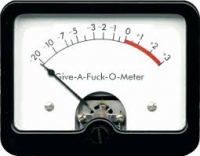Leonardtown Man Sentenced to Six Years in Prison for Distribution of Heroin that Resulted in the Death of a Friend
GREENBELT, Md. (Aug. 25, 2015) -- U.S. District Judge Theodore D. Chuang sentenced Joshua Scott Schellhase, age 31, of Leonardtown, Maryland today to six years in prison followed by three years of supervised release for distribution of heroin. A close friend of Schellhase died as a result of using the heroin distributed by Schellhase.
The sentence was announced by United States Attorney for the District of Maryland Rod J. Rosenstein; Special Agent in Charge Karl C. Colder of the Drug Enforcement Administration - Washington Field Division; and St. Mary's County Sheriff Tim Cameron.
According to his plea agreement, during 2012 Schellhase was close friends with an individual with whom Schellhase used heroin or other opiates on a daily basis. Schellhase and the individual would provide heroin to each other as they were able to obtain it.
On October 11, 2012, the individual contacted Schellhase by text message and Schellhase agreed to give the individual some heroin that Schellhase had recently purchased. During the early evening, Schellhase drove to a residence in Callaway, Maryland. The individual came out of the house and Schellhase gave the individual a small amount of heroin and two cigarettes. The individual went back into the house, went into the bathroom and ingested the heroin he had received from Schellhase. About 15 minutes later, the individual's girlfriend knocked on the bathroom door, but received no response. She opened the door and discovered the individual slumped over and non-responsive. Emergency medical personnel were called and attempted to revive the individual, but the individual died.
The cause of death was determined to be morphine intoxication. The victim died as a result of ingesting the heroin provided by Schellhase.
United States Attorney Rod J. Rosenstein praised the DEA and St. Mary's County Sheriff's Office for their work in the investigation. Mr. Rosenstein thanked Assistant U.S. Attorneys Deborah A. Johnston and Leah J. Bressack, who prosecuted the case.
GREENBELT, Md. (Aug. 25, 2015) -- U.S. District Judge Theodore D. Chuang sentenced Joshua Scott Schellhase, age 31, of Leonardtown, Maryland today to six years in prison followed by three years of supervised release for distribution of heroin. A close friend of Schellhase died as a result of using the heroin distributed by Schellhase.
The sentence was announced by United States Attorney for the District of Maryland Rod J. Rosenstein; Special Agent in Charge Karl C. Colder of the Drug Enforcement Administration - Washington Field Division; and St. Mary's County Sheriff Tim Cameron.
According to his plea agreement, during 2012 Schellhase was close friends with an individual with whom Schellhase used heroin or other opiates on a daily basis. Schellhase and the individual would provide heroin to each other as they were able to obtain it.
On October 11, 2012, the individual contacted Schellhase by text message and Schellhase agreed to give the individual some heroin that Schellhase had recently purchased. During the early evening, Schellhase drove to a residence in Callaway, Maryland. The individual came out of the house and Schellhase gave the individual a small amount of heroin and two cigarettes. The individual went back into the house, went into the bathroom and ingested the heroin he had received from Schellhase. About 15 minutes later, the individual's girlfriend knocked on the bathroom door, but received no response. She opened the door and discovered the individual slumped over and non-responsive. Emergency medical personnel were called and attempted to revive the individual, but the individual died.
The cause of death was determined to be morphine intoxication. The victim died as a result of ingesting the heroin provided by Schellhase.
United States Attorney Rod J. Rosenstein praised the DEA and St. Mary's County Sheriff's Office for their work in the investigation. Mr. Rosenstein thanked Assistant U.S. Attorneys Deborah A. Johnston and Leah J. Bressack, who prosecuted the case.


